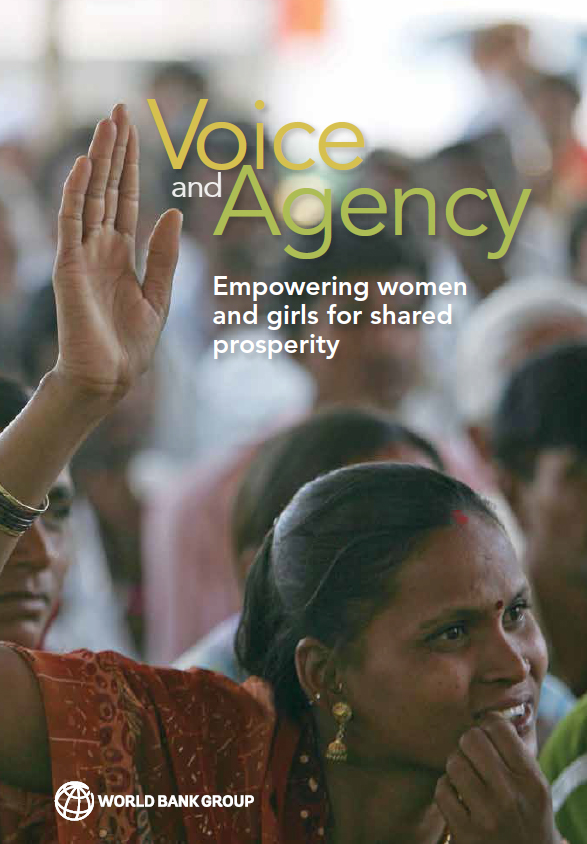
Voice and Agency: Empowering Women and Girls for Shared Prosperity.
Building on the 2012 World Development Report, the report focuses on several areas key to women's empowerment: freedom from violence, control over sexual and reproductive health and rights, ownership and control of land and housing, and voice and collective action.
It distills vast data and hundreds of studies to shed new light on constraints facing women and girls worldwide, from epidemic levels of gender-based violence to biased laws and norms that prevent them from owning property, working, and making decisions about their own lives. It also highlights promising reforms and interventions from around the world and lays out an urgent agenda for governments, civil society, development agencies, and other stakeholders.
Among its keys findings: Girls with little or no education are far more likely to be married as children, suffer domestic violence, live in poverty, and lack a say over household spending or their own health care than better-educated peers, which harms them, their children, and communities.
Across 18 of the 20 countries with the highest prevalence of child marriage, girls with no education were up to six times more likely to marry than girls with high school education, the report finds. Nearly one in five girls in developing countries meanwhile becomes pregnant before age 18, while pregnancy-related causes account for most deaths among girls 15-19 in the developing world-nearly 70,000 die each year.
In all regions, better educated women tend to marry later and have fewer children. Enhanced agency--the ability to make decisions and act on them--is a key reason why children of better educated women are less likely to be stunted: Educated mothers have greater autonomy in making decisions and more power to act for their children's benefit.
Voice and Agency: Empowering Women and Girls for Shared Prosperity also explores the power of social norms in dictating how men and women can and cannot behave-deterring women from owning property or working even where laws permit, for example, because those who do become outcasts.
